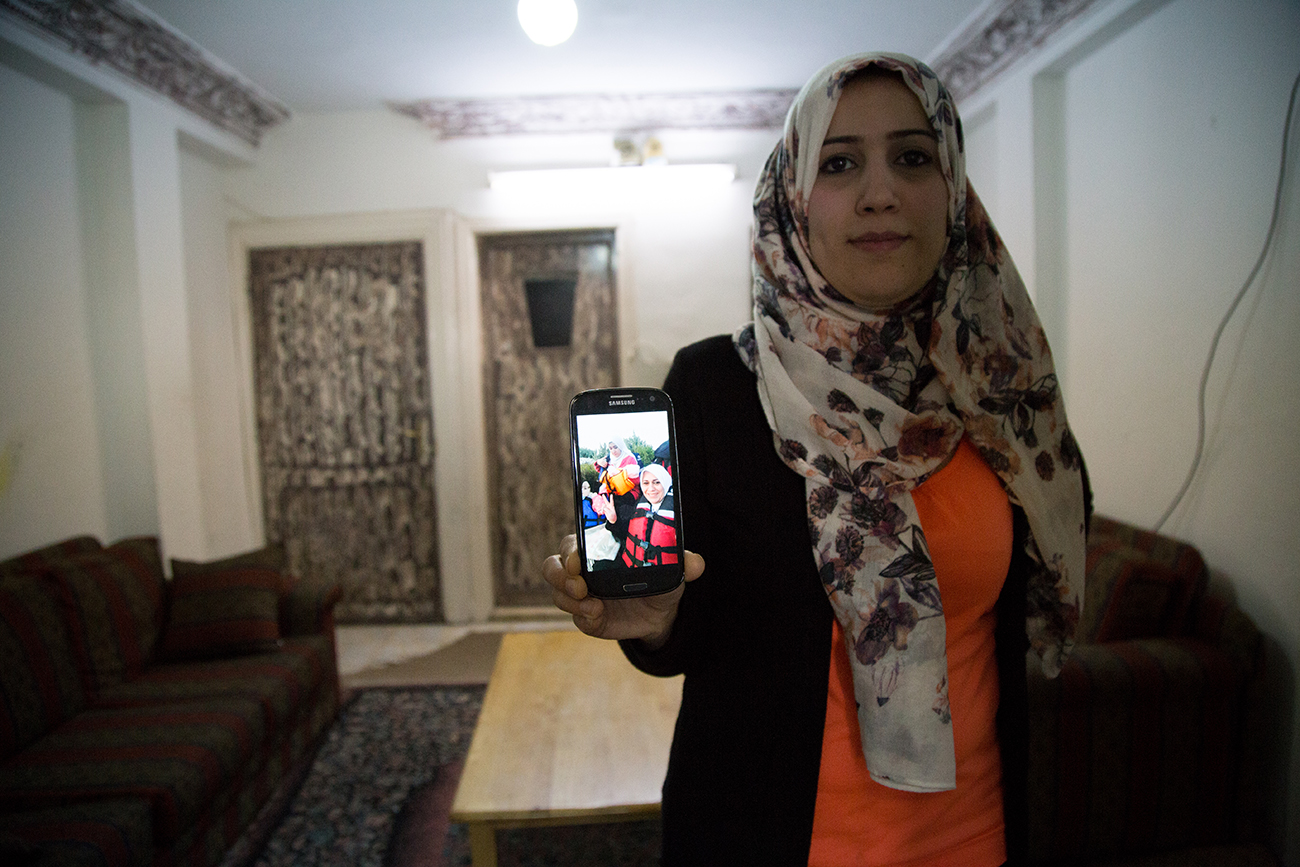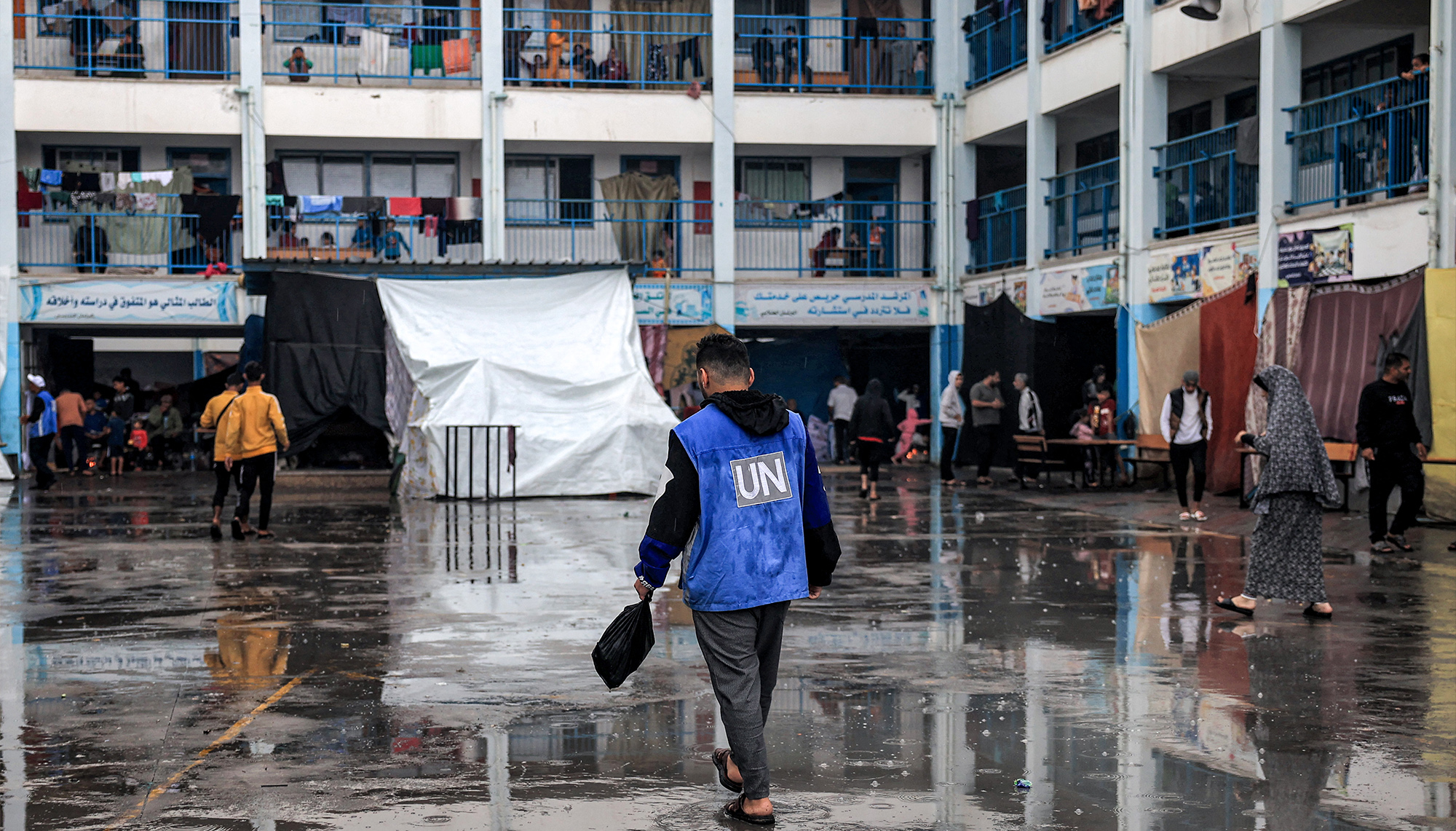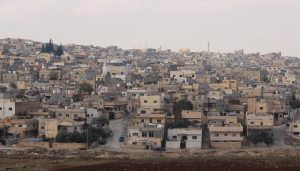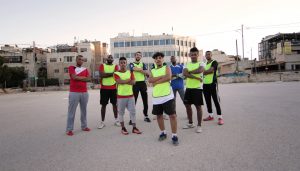By Lina Shannak, photography by Hussam Da’na
Translated from Arabic by Orion Wilcox
When Syrian men and boys reach the shores of Europe, the first thing they do is call or message their wives and mothers to tell them that they have safely crossed the sea. But for those left behind, this moment is the end of one suspenseful wait and the beginning of yet another.
This time the wait is for a family reunification appointment—an appointment they hope will allow them to join their loved ones in Europe. The experience differs from family to family. For some there is a clear path—a result of good luck in their opinion. But for others, the waiting stretches on indefinitely, until hope for a better future—for which they have risked everything, exhausted savings and in some cases taken on stifling debt—slowly fades away.
Around 2,000 people arrive on the shores of Europe every day, the majority of them fleeing violence in Syria and Iraq, according to statistics collected by the International Migration Organization (IOM). Meanwhile, it appears as if the openness to refugee arrivals in Europe is waning, particularly in Germany where authorities recently instituted legislation limiting the freedom of refugees and placing constraints on family reunification rights for those who receive what is known as “subsidiary protection.”
Perhaps the statement of European Council President Donald Tusk best sums up the attitude in Europe: “Do not come to Europe. Do not believe the smugglers. Do not risk your lives. It is all for nothing.”
But this statement came too late for a great many, including the women featured here, who told us of the “harrowing journeys” taken by their husbands and the persisting impact on their families.
Waiting for an appointment
For Rasha and her three children, all hope of reuniting with her husband in Germany depends on a single appointment with the German Embassy—a thought that has made her feel “dizzy.”
Obtaining this appointment wasn’t easy. Rasha, who has been waiting for her appointment since November of last year, paid 300 Euros to schedule a time-slot through a special group for organizing appointments with the German Embassy on Whatsapp. Others have paid substantially larger sums for similar services.
But Rasha says she is not excited about the prospect of moving to Germany. She has adjusted to life in Jordan; even her husband never wanted to live in a non-Arab country.
Friends and colleagues that took the perilous journey to Europe encouraged Rasha’s husband to do the same and he found himself facing a difficult choice. He didn’t feel comfortable at work—the prospect of being arrested by the Ministry of Labor lingering—but his family objected to the idea of leaving Jordan.
Rasha’s husband left last August and was one of those trapped in the train station in Budapest, Hungary where he slept for five days. Finally arriving in Germany, he received residency in less than two months.
Rasha says that her husband is unhappy in Germany, partly because of the distance from his family and partly because he never actually expected to settle there permanently. But that was before Rasha’s family arrived from Syria.
Rasha’s family left Syria for Germany last December. Her parents and sister’s family first went to Turkey where they planned to take a boat to Greece. Everything went as planned and Rasha followed the steps of her family’s journey through the picture messages they sent her along the way. Then one night the family called Rasha’s other sister telling her to call the coast guard immediately.
“At this moment I felt like my entire family was gone,” says Rasha. An hour passed before Rasha and her sister received word that their family had arrived in Greece safely.
Rasha tells her story without fear and she says there are many more people intending to take the journey despite the obvious danger. For her it’s an issue of “life or death.”
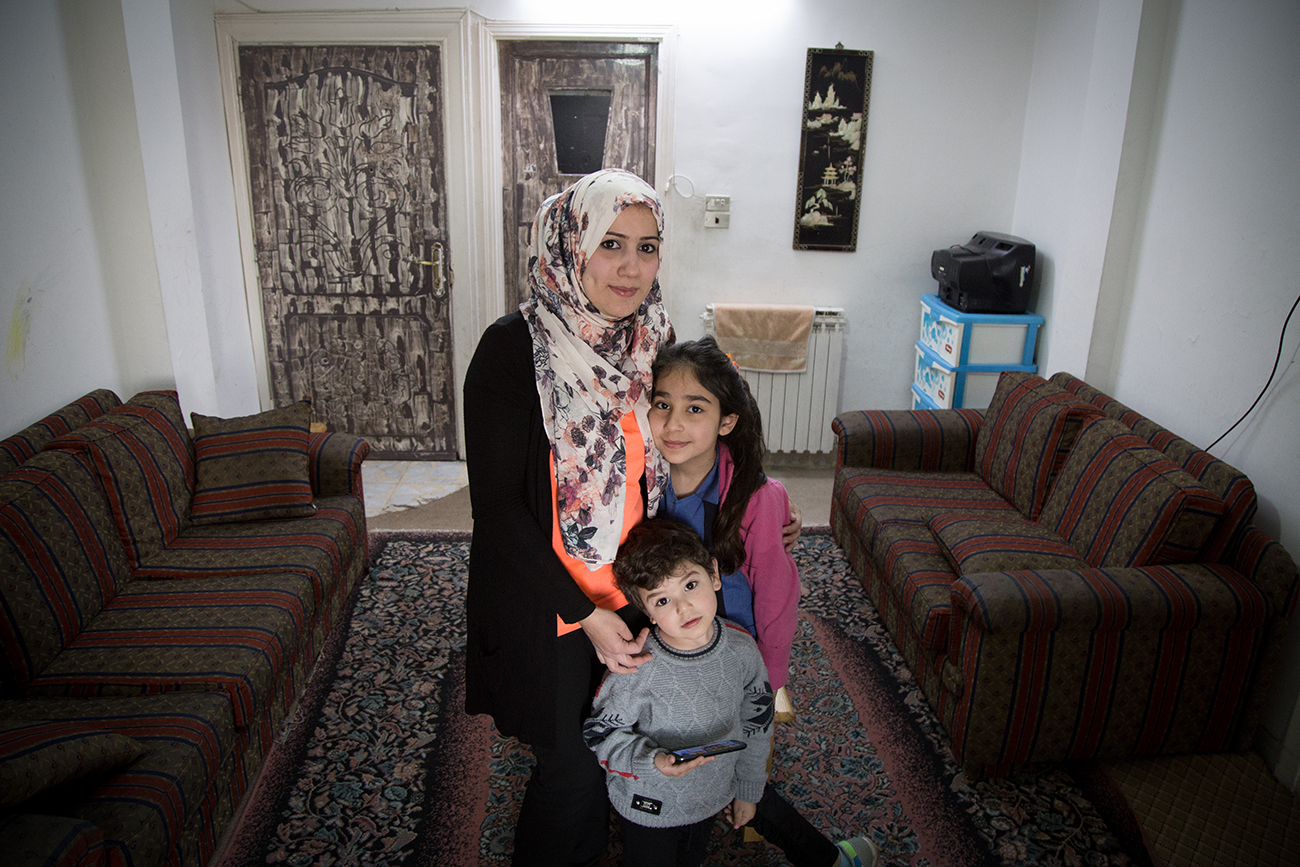
Rasha with her kids Shahd and Ward in Amman. Rasha’s family was divided between Syria and Jordan before reuniting in Germany, and Rasha waits to join them
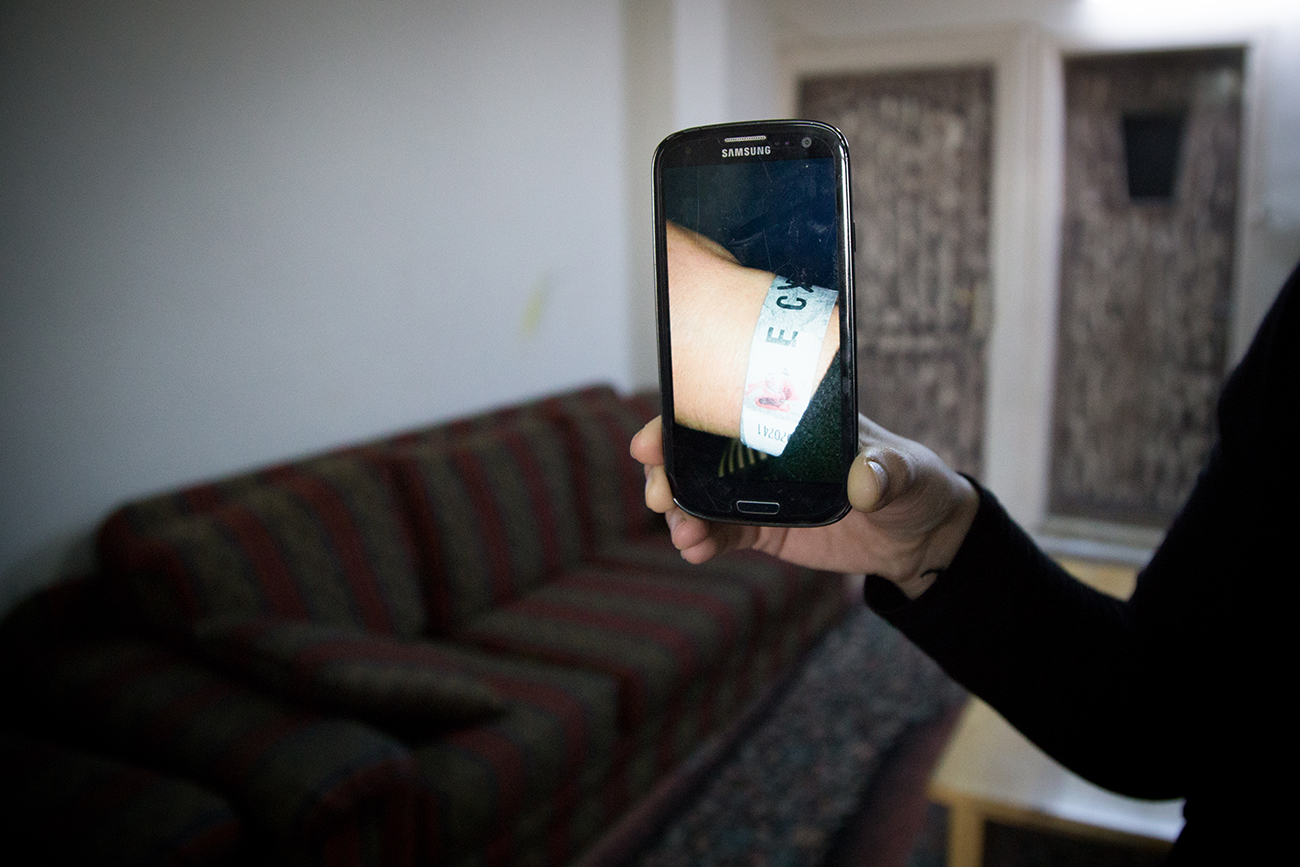
Rasha shows the photo sent to her phone by her husband upon his arrival to Europe.
Her husband left and so did her access to aid
Lina and her husband arrived in Jordan in 2012, after leaving Syria before their oldest of two sons turned 18, the age of military conscription. At first Lina’s husband found work in Jordan but soon quit—he couldn’t bear the thought of being arrested by the Ministry of Labor inspectors again.
That’s when things started to head south for Lina. The inability to provide for the family frustrated Lina’s husband and he began picking fights at home. In 2014 the family found a smuggler through a Facebook page containing pictures of safe arrivals in Europe. They decided to give it a shot.
After flying to Algeria, Lina’s husband headed to Tunis and then Libya before crossing the Mediterranean to Italy. The plan was to head straight to Holland, but shortly after arriving in Italy, Lina’s husband and his fellow travelers were rounded up by police and told they were being taken to a camp. Instead the men and women were taken to the local police station.
Remembering his relatives’ advice, Lina’s husband resisted having his fingerprint taken. EU law requires that all arriving refugees be fingerprinted in their country of arrival. Eventually, several policemen surrounded Lina’s husband and—after striking him several times—forced him to place his inked finger in the specified location.
When Lina’s husband finally arrived in Holland his request for asylum was denied because he had been fingerprinted in another EU country. After that he decided to go to Germany, where his request was also denied.
As the series of court dates and appeals for German residency dragged on, Lina’s son turned 18 years old, meaning that he would not be included in any future family reunification granted by the German government. The sea was the son’s only path to reunite with his father.
As for Lina, she continues to work whenever she can and her 16 year old son left school to work and help cover living expenses. The family should receive significant assistance from the United Nations High Council for Refugees (UNHCR) but the “retina scan” required to receive the aid belongs to Lina’s husband.
“He has to come and place his eye in front of the scanner,” says Lina. “My husband left and the aid went with him—along with all of our luck.”
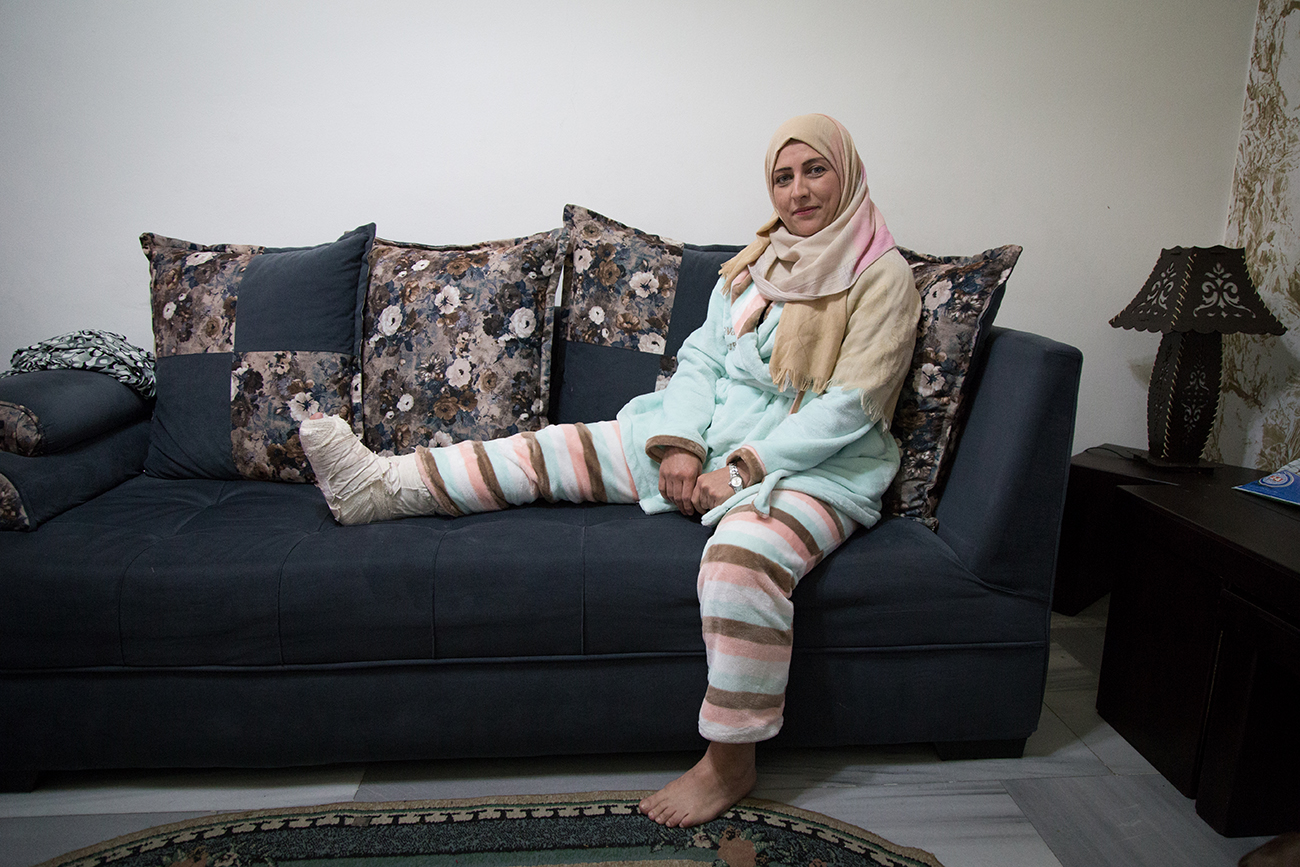
Both Lina and her 16-year old son work to secure enough income to cover rent and the family expenses.
Internet weddings
When relatives began telling Shireen’s husband that he should go to Germany, the living conditions of the family, made up of two wives, four sons and three daughters, were very bad, so he didn’t see any reason not to take their advice.
The husband left Jordan in March 2015, beginning a trip that would last around three months—in which he called the family whenever an opportunity arose. But upon arriving in Germany, Shireen’s husband discovered that family reunification only applied to one of his wives. So the second wife was forced to cross the sea alone, leaving her only son with Shireen until the family receives family reunification and the whole family can live under one roof again as they did in Irbid.
Shireen says her husband is not comfortable in Germany and he is thinking about taking a trip to Jordan as soon as he receives residency—he also thinks about ways to return permanently. This is despite the fact that prior to leaving, he had multiple run-ins with Ministry of Labor inspectors at the Hassan Industrial City cardboard factory where he worked.
Shireen’s husband has missed a lot since he left for Germany. His eldest daughter was married and a second celebrated her engagement. All he could do was follow along with the festivities over Skype.
Their change of marriage had come and it couldn’t be postponed, says Shireen.
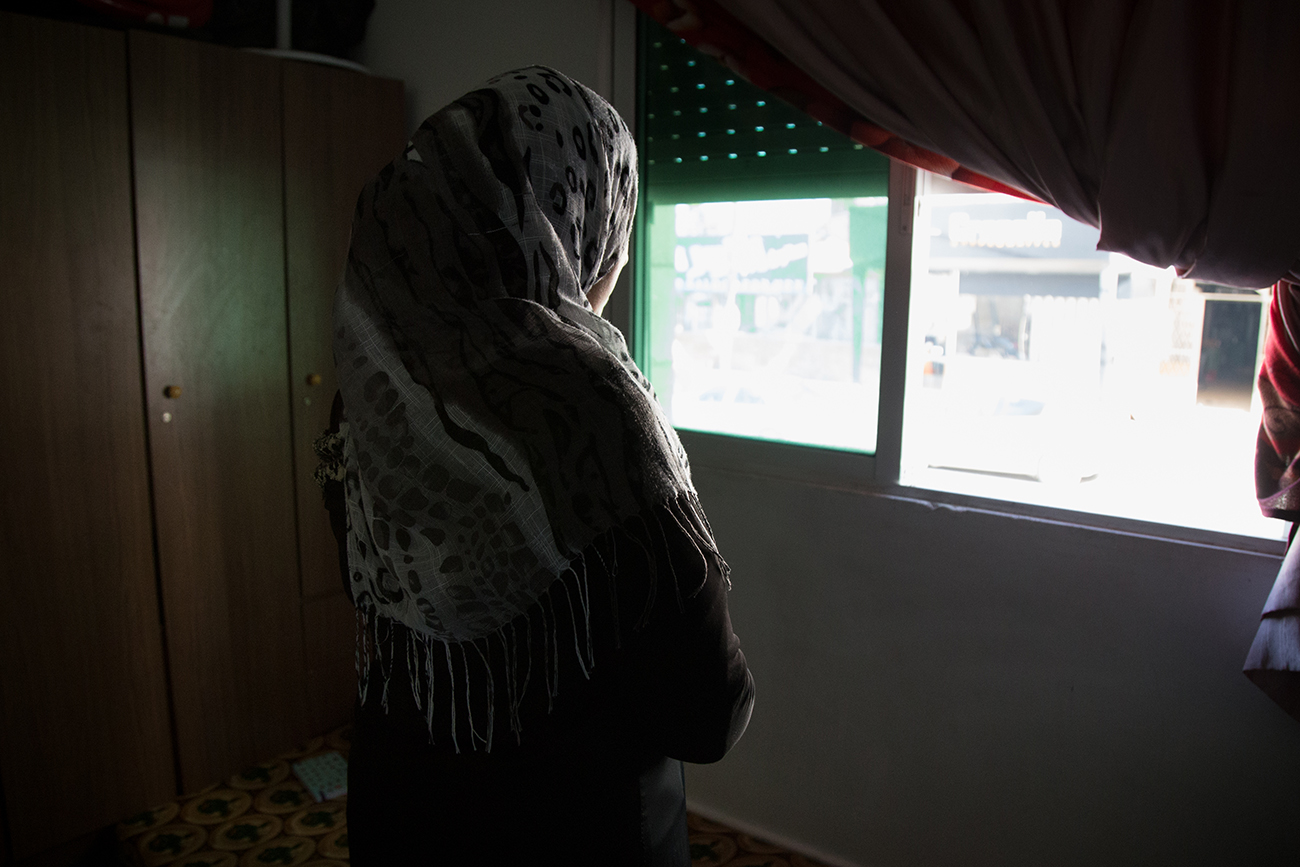
Shireen is responsible for taking care of her own kids and her stepson, until they are all reunited with her husband and his second wife in Germany
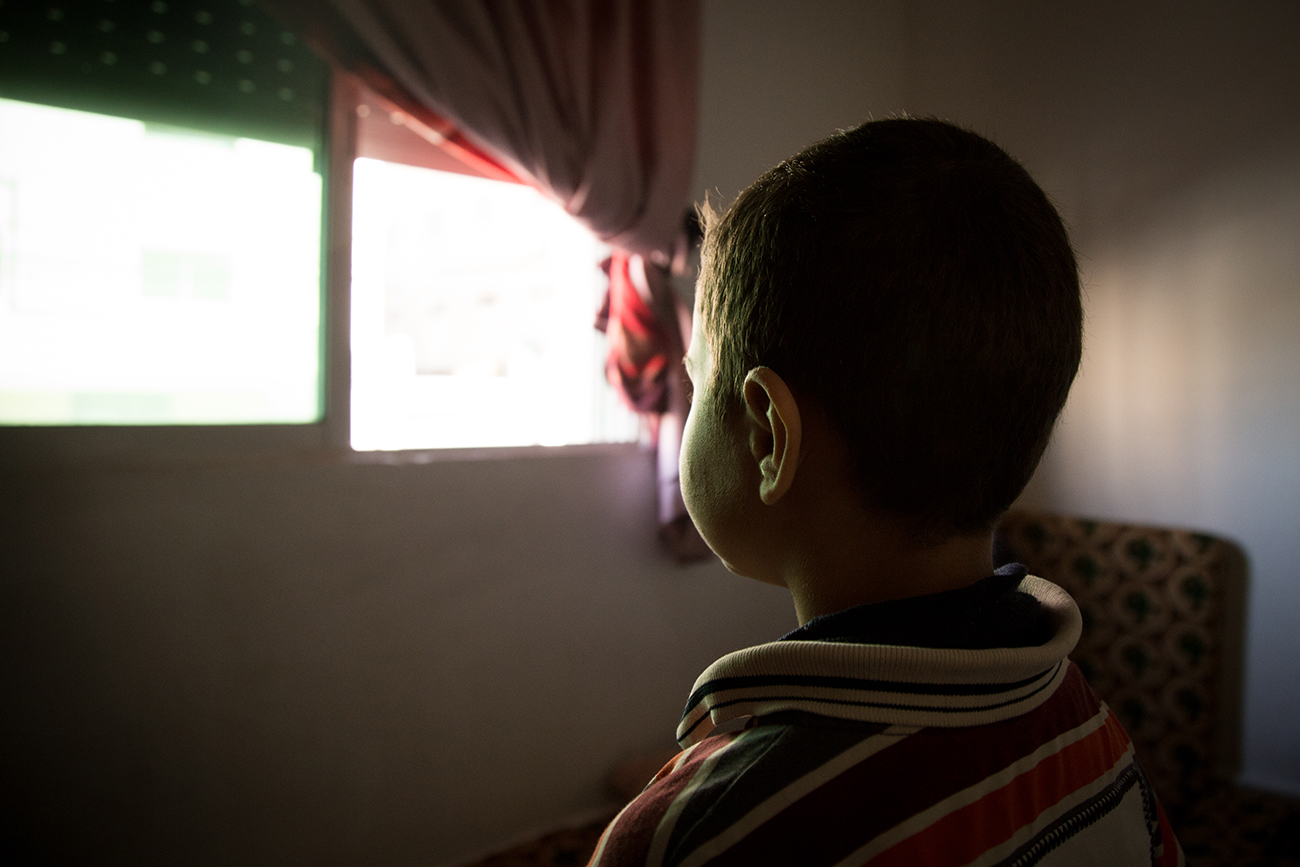
Ahmad (not his real name) has lived with his stepmother since his mother followed his father to Germany a year ago
Restoring lost dignity
Ten months have passed since Salma’s 34 year old son left Jordan for Germany with a group of friends. The choice to embark on the journey to Europe was one step in “restoring dignity” the son felt he had lost in Jordan, says Salma (alias).
When Ministry of Labor inspectors would enter the barber shop where he worked, Salma’s son would sit on a chair against the wall, pretending to be a customer waiting for his turn.
Then the insults would begin, with the inspectors reminding him of his refugee status and telling him that they could deport him at a moment’s notice.
On many occasions the young man returned home fighting back tears. Leaving Jordan became the only way to ensure a brighter future for his two sons and daughter, although the family didn’t support the idea of moving to a non-Muslim country, says Salma.
Salma’s son traveled to Germany accompanied by his eldest son (nine years old); a decision taken to expedite the family reunification process. The German government granted him residency recently and now the family is awaiting an appointment with the country’s embassy in Amman. But the journey remains a long one, full of trips to get paperwork translated and notarized. The cost of the process is daunting for the family.
Salma’s grandchildren can’t wait to join their father in Germany and to explore the world that their older brother tells them about. He prefers Germans to Syrians and Jordanians—there are people who celebrate his birthday with him so he won’t feel lonely there instead of people threatening him with deportation everyday.
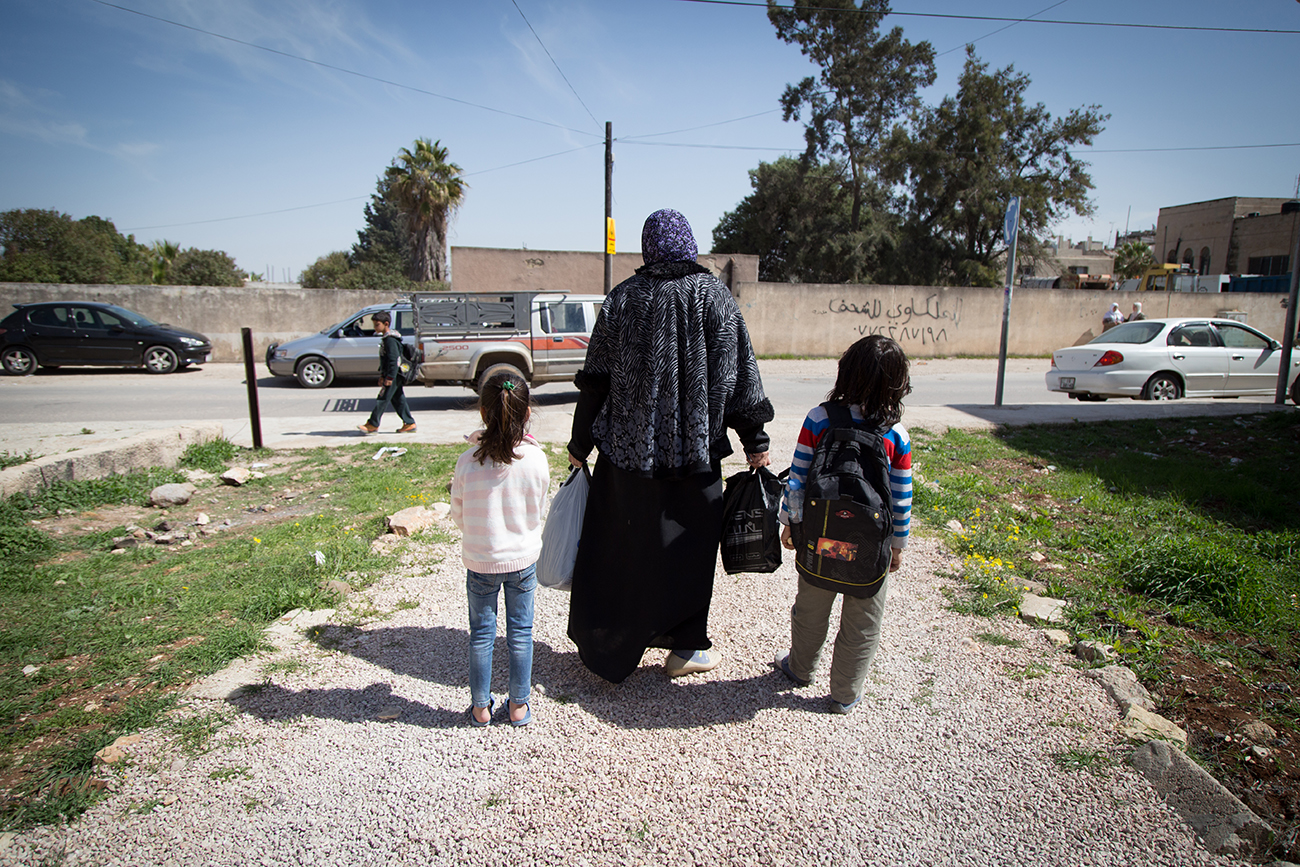
Salma’s Grandchildren lives with their mother and grandmother, while they wait for reuniting with their father and brother In Germany
